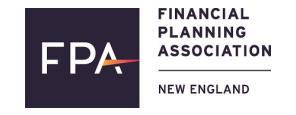October 24, 2012
Dear Colleague,
Leaders of the Financial Planning Coalition gathered in Washington, D.C., in September to discuss strategies for the Coalition’s main legislative and regulatory issues and to begin looking at longer-term efforts needed to build the profession of financial planning.
In the months since the last in-person meeting of the Coalition’s governance group (the group meets at least monthly by teleconference), the Coalition engaged in an intensive — and successful — advocacy campaign to keep authority for oversight of registered investment advisers (RIAs) with the Securities and Exchange Commission (SEC) and state securities regulators. During this period, the Coalition also continued its efforts in support of SEC rulemaking that would set a uniform fiduciary standard of care for financial services providers offering personalized investment advice.
Coalition Blocks FINRA Oversight of Investment Advisers
As the Coalition’s governance group was meeting in Denver, Colo. in March, the Chairman of the House of Representatives Financial Services Committee, Spencer Bachus, R-Ala., was finalizing plans to pass a bill that would require RIAs to come under the oversight of a self-regulatory organization (SRO). The Financial Industry Regulatory Authority (FINRA) and many powerful interests in the securities brokerage industry actively backed the proposal. But a Boston Consulting Group (BCG) study, initiated by the Coalition, demonstrated the high costs of SRO oversight, countering a much less detailed and less convincing analysis by FINRA. Armed with the BCG study and strong grassroots support from CFP® professionals and FPA and NAPFA members, the Coalition engaged in an intensive lobbying effort and also submitted a statement for the record at a June hearing on the SRO bill. The efforts paid off, and by the end of July the proposal, which had seemed so certain to pass the Financial Services Committee, was pulled by Chairman Bachus. In the process, the Coalition also put to rest misleading assertions that the RIA community’s opposition was based on a preference for weak oversight. As an alternative to the SRO bill, the Coalition and others supported a bill introduced by Representative Maxine Waters, D-Calif., that would substantially increase RIA oversight by the SEC, funded through RIA user fees. Just before the Coalition’s September meeting, our volunteer leaders and policy staff gathered to meet with House Financial Services Members’ staff to support the preferred approach of the Waters bill and the need for increased responsible oversight of RIAs. Supporters of an SRO bill cannot credibly claim that RIAs oppose better oversight.
While neither bill is expected to move in this Congress, the issues that drove these bills remain. So the Coalition is preparing for a renewed effort to advance increased investment adviser oversight when the next Congress convenes.
Fiduciary Standard Battle Continues
The Coalition’s governance group also spent time at its September meeting to discuss what could be done to jump-start SEC efforts to hold broker-dealers to a fiduciary standard when offering personalized investment advice to retail customers. During the summer, Coalition leaders came to Washington, D.C., to meet with SEC Commissioners and restate strong support for SEC action, asking what the Coalition could do to help the process along. The Coalition also continues to make the case for higher standards to Members of Congress and the media. Unfortunately, while we understand that SEC’s staff has spent significant time working on a further request for information on the costs and benefits of a uniform fiduciary rule, opposition from some quarters and a backlog of rulemaking mandated under Dodd-Frank has worked against progress toward a fiduciary rule proposal. The SEC seems unlikely to move forward anytime soon. The Coalition will continue its efforts to support this SEC rulemaking, raise awareness and educate policymakers and the public.
The Future
The leaders of the Coalition have reaffirmed their commitment to the recognition and regulation of financial planning as a profession. The group began an in-depth discussion of the opportunities and challenges for the profession on the federal, state and self-regulatory landscapes. One of the Coalition’s achievements in the Dodd-Frank regulatory reform was to secure a Government Accountability Office (GAO) study regarding how financial planners are regulated. The GAO study, completed in January 2011, is just one part of the important groundwork that the Coalition is looking to build on as we look to map out the future of the profession. The governance group will continue to explore how the Coalition can work together to set a path for the long-term recognition and regulation of the profession.
The Coalition
While we frequently talk about the organizations that make up the Financial Planning Coalition — Certified Financial Planner Board of Standards, Financial Planning Association and National Association of Personal Financial Advisors — the individual leaders are not often recognized. In addition to the organizations’ CEOs and lead policy staff, three volunteer leaders from each organization participate in Coalition deliberations and decisions as part of the Governance Group. These leaders change from time to time, usually coinciding with the individual organization’s leadership succession. Currently the volunteer leadership of the Coalition is:
CFP Board of Standards:
- Alan Goldfarb, CFP®
- Nancy Kistner, CFP®
- Ray Ferrara, CFP®
Financial Planning Association:
- Marty Kurtz, CFP®, AIFA®
- Paul Auslander, CFP®
- Michael Branham, CFP®
National Association of Personal Financial Advisors:
- Lauren Locker, CFP®, CSA®, RFG®
- Susan John, CFP®, AIF®
- John Ritter, CFP®, CFS®
We appreciate your continued support for the work of the Financial Planning Coalition. More information on the Coalition and its activities is available on the Coalition’s website (www.financialplanningcoalition.com).
The Financial Planning Association is the owner of trademark, service mark and collective membership mark rights in: FPA, FPA/Logo and FINANCIAL PLANNING ASSOCIATION. The marks may not be used without written permission from the Financial Planning Association.

